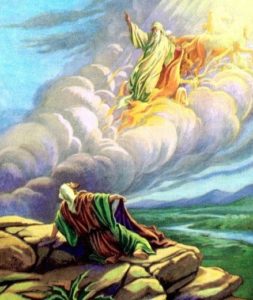
“Isaac Blessing Jacob”, by Gustav Doré
This week’s parasha, Toldot, begins with the births of the twins Jacob and Esau. Their mother, Rebecca, felt trouble brewing in her womb, and received prophecy that “two nations are in your womb, and two peoples will emerge from your innards” (Genesis 25:23). Jacob, of course, is the forefather of the Jewish people, while Esau would become the spiritual progenitor of the Roman Empire, and then the entire Christian world as a whole (see ‘How Esau Became Rome’).
The Ba’al haTurim (Rabbi Yaakov ben Asher, c. 1269-1343) comments on the above verse that the words shnei goyim b’vitnekh (שני גוים בבטנך), “two nations are in your womb”, has the same gematria as “this is Rabbi Yehuda and Antoninus” (זה רבי יהודה ואנטונינוס). Recall that Rabbi Yehuda haNasi was the president of Israel in the 2nd century CE, and is credited with composing the Mishnah, the first complete corpus of Jewish law, while Antoninus was a Roman official who was his close friend. The Ba’al haTurim is telling us that there is a profound connection between these two sets of people that are separated by nearly two millennia. What is the connection between the pair of Jacob and Esau, and the pair of Rabbi Yehuda haNasi and Antoninus? Continue reading


